5 Reasons I'm Skipping the iPhone 8 for the iPhone X
The iPhone 8 and 8 Plus are great, but the iPhone X is the one that's really worth waiting for.
Editors' Note: This article was originally published Sept. 27. We've updated it now that we've had a chance to review the iPhone X.
Though the iPhone 8 and iPhone 8 Plus are the fastest phones ever and sport Samsung-beating cameras, sales of these two flagships got off to a slow start. And the iPhone X is likely the culprit.
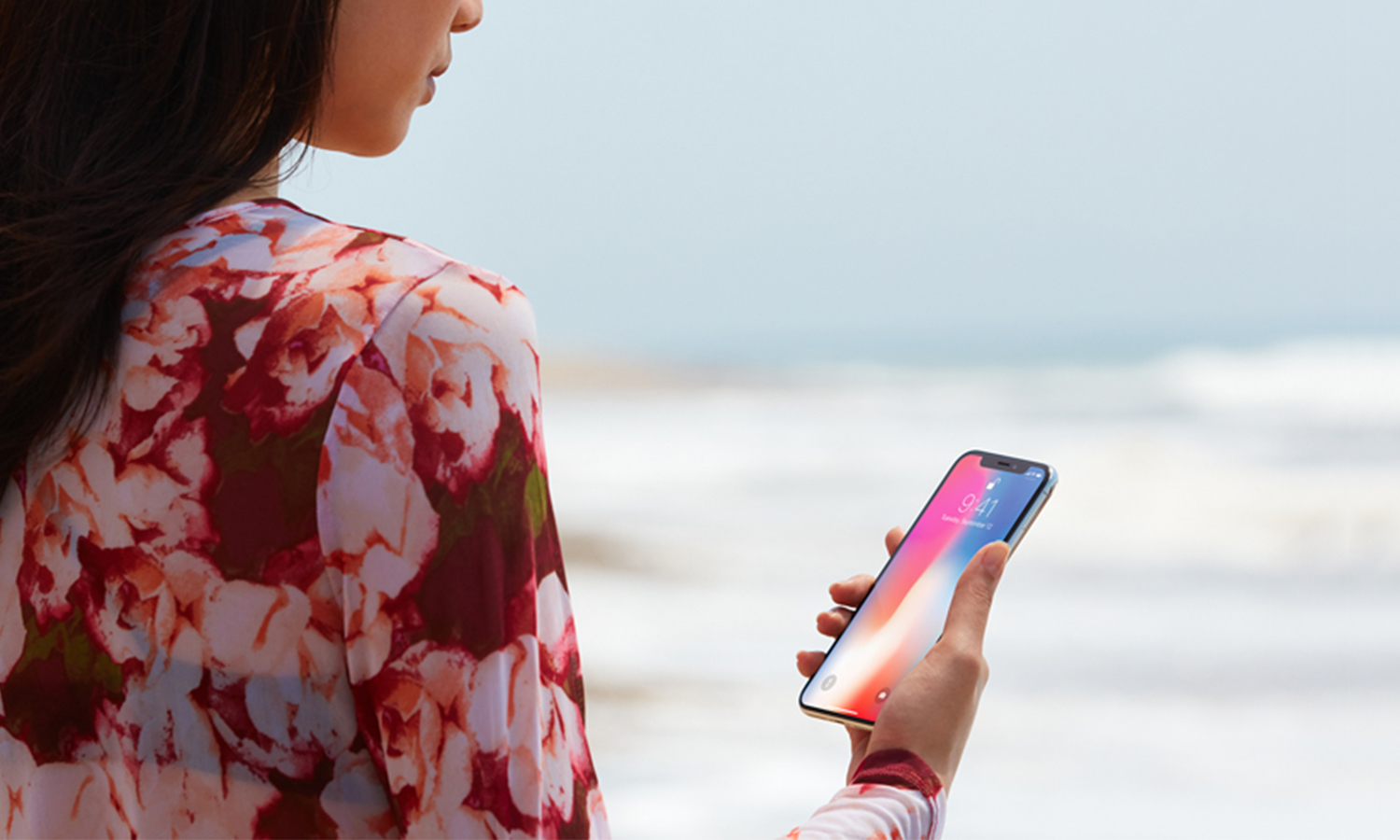
According to research firm Localytics, the iPhone 8 and iPhone 8 Plus captured 0.3 percent and 0.4 percent of international market share after the first weekend of sales in September. Compare those numbers to the market share a year ago, when the iPhone 7 and iPhone 7 Plus garnered 1 and 0.4 percent, respectively. That's a big tumble.
Those reports about small lines outside Apple stores did translate to weaker sales overall, but there's a reason for the lukewarm reception. According to KGI Securities analyst Ming-Chi Kuo, as reported by MacRumors, roughly half of new iPhone sales are predicted to come from the iPhone X, which is now available for pre-orders and arrives in stores this Friday (Nov. 3).
MORE: The Best iPhone X Deals
Even though the iPhone X starts at a steep $999, lots of shoppers are waiting for it, and I was one of them. Here's why. And, no, Animoji didn't make my list (though I am more impressed with these animated emoji now that I've had a chance to use them).
A new compact design
As much as I like the big 5.5-inch screen on the iPhone 8 Plus, it can be a stretch to use the device with one hand because of those annoying bezels around the screen. The iPhone X has an even bigger, 5.8-inch edge-to-edge display that fits in a more compact chassis. I've found it easier to stretch my thumb across the iPhone X's display, and Apple's latest phone slips easily into my pocket.
Get instant access to breaking news, the hottest reviews, great deals and helpful tips.
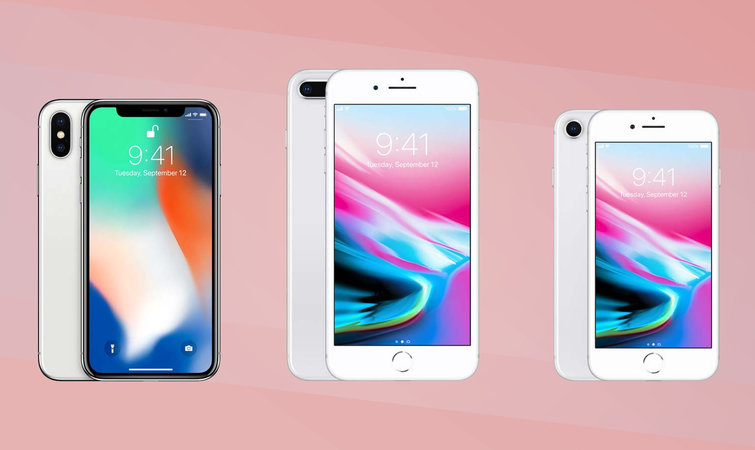
The iPhone X is 5.65 inches tall and 2.8 inches wide, compared with 6.24 x 3.07 inches for the iPhone 8 Plus. That's a big difference. At the same time, the iPhone X is also about an ounce lighter than the iPhone 8 Plus (6.14 ounces versus 7.13 ounces).
MORE: 10 Reasons iPhone X Beats the Galaxy Note 8
This might seem a little shallow, but if I'm going to shell out more than $700 for a new phone, I want it to look truly new, and not just like an old phone with a new glass back.
A better OLED display
This is an overdue upgrade for the iPhone. After Samsung got all the praise for the OLED displays on the Galaxy line, the iPhone X is getting an OLED display of its own. Apple calls it a Super Retina display, but it delivers the same benefits as other OLED panels, such as perfect blacks, wider viewing angles and more vivid colors.
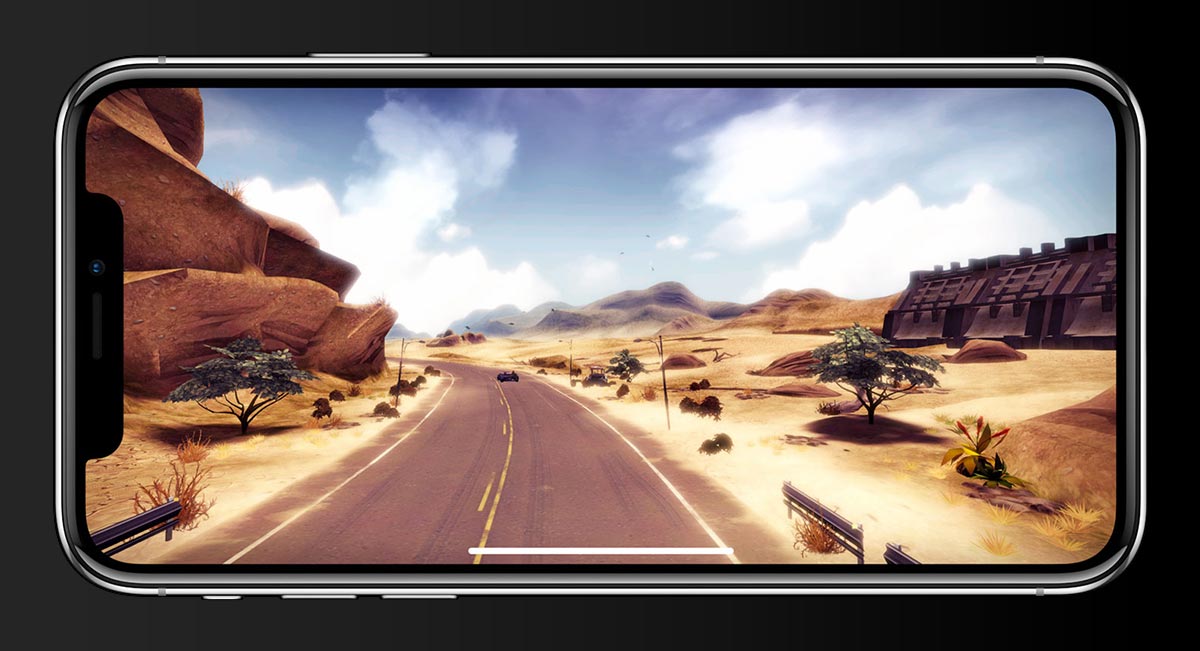
Having had a chance to compare the iPhone X's screen to the OLED panel on the Galaxy Note 8, I prefer the colors on Samsung's phone, which pack a little more punch. Still, I appreciate the move to OLED with the iPhone X, which is definitely sharper-looking than the iPhone 8 and its LCD screen.
The iPhone X's screen also offers a crazy-high contrast ratio of 1 million to 1, compared with 1300:1 for the iPhone 8 Plus. You also get a higher resolution on the iPhone X, at 2436 x 1125 pixels, versus 1920 x 1080 for the iPhone 8 Plus. And the iPhone X is the only new phone in Apple's lineup to support HDR content, which means you can expect to see more colors and better contrast in movies and TV shows.
Face ID
While some of my colleagues lament the lack of Touch ID and a home button on the iPhone X, I see it as a sign of progress. Utilizing a new TrueDepth front camera, the handset should be able to log you in before you finish picking it up. And, unlike Touch ID, Face ID will still work even if your fingers are sweaty or have crumbs on them.
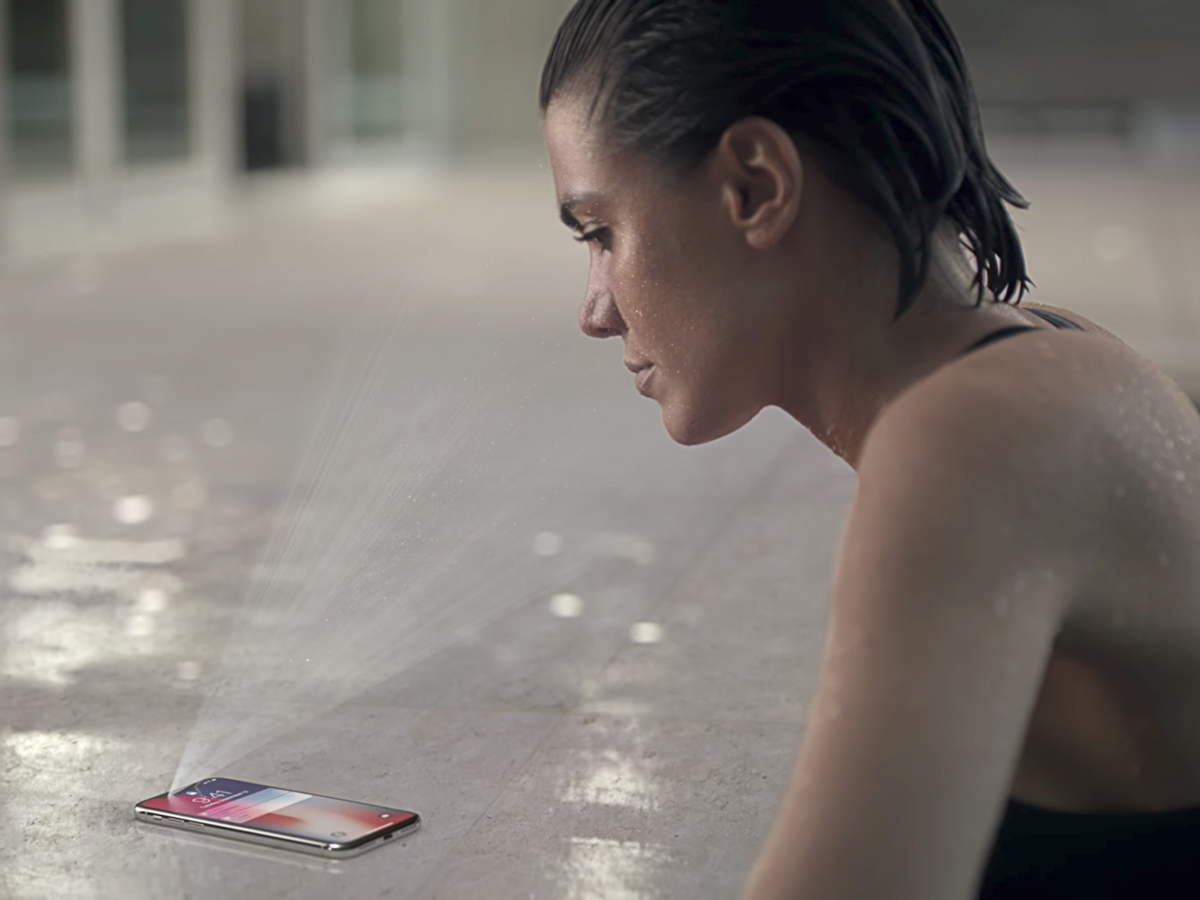
My one complaint about Face ID is that it doesn't unlock straight to the home screen. You still need to swipe up to get to the home screen, which is a needless additional step. Still, when testing Face ID, I found my iPhone X usually unlocked before I realized it, even in a very dim bar.
Better front and back cameras
As great as the dual cameras on the iPhone 8 Plus are, the iPhone X goes a step further by adding optical image stabilization (OIS) to both the wide-angle and telephoto lenses. On the iPhone 8 Plus, there's OIS on only the wide-angle lens.
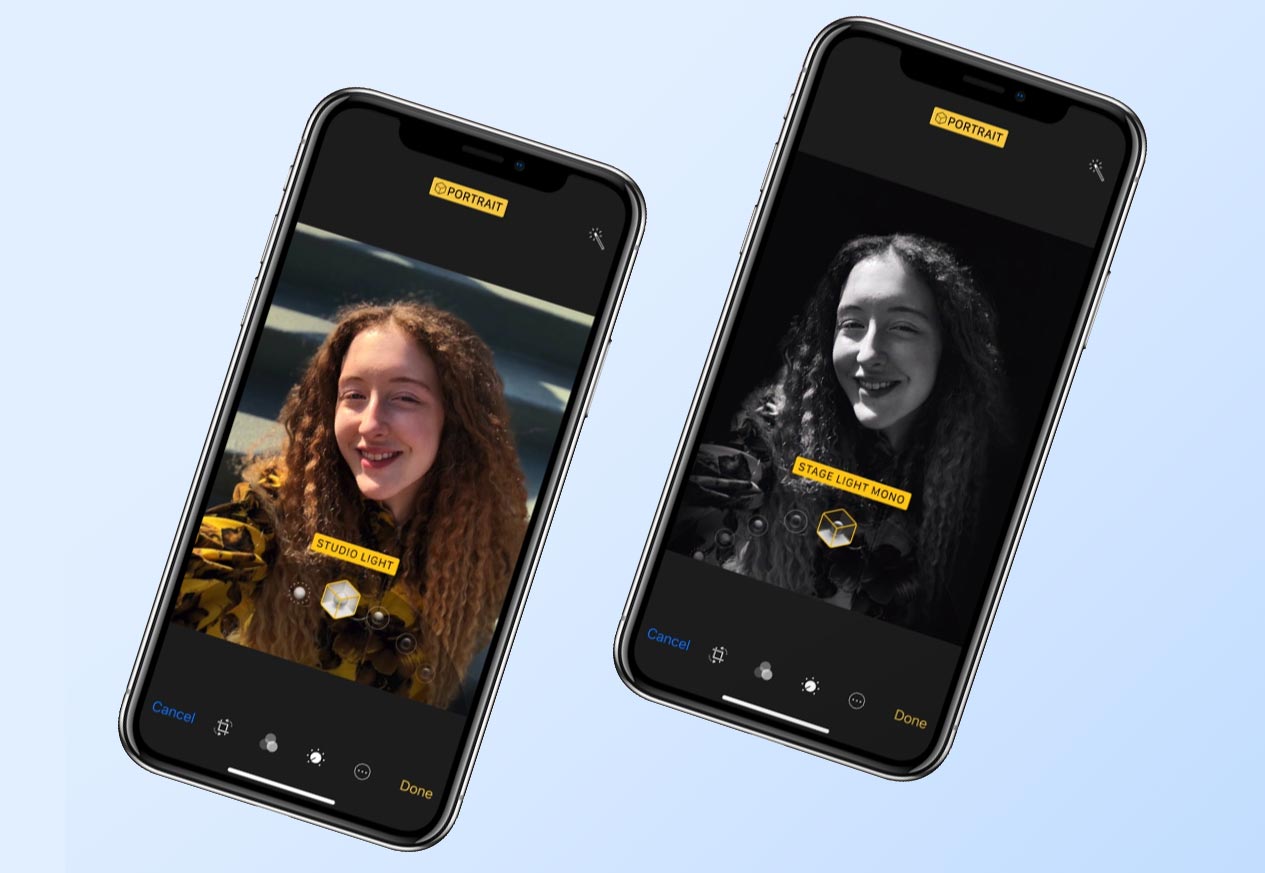
This means you should get steadier and crisper shots as you zoom in, and better results in low light.
MORE: 30 Great Photos Taken With the iPhone 8
Having had the chance to test the iPhone X's cameras, I've also come to appreciate the wider aperture on the iPhone X's telephoto lens — it's an f/2.4 aperture, compared to f/2.8 on the iPhone 8 Plus. Turning on the camera's 2x optical zoom, I could make out more details in a shot of a Times Square billboard captured by the iPhone X than I could with the iPhone 8 Plus's image.
On the front, the 7-megapixel TrueDepth camera lets you snap the same kind of attractive portrait photos as the back cameras do, complete with a blur effect on the background and various lighting effects.
A bigger battery
A recent report says the iPhone X will include a 2,716-mAh battery, which would be bigger than the 1,821-mAh and 2,691-mAh batteries in the iPhone 8 and 8 Plus, respectively. The iPhone 8 Plus lasted 11 hours and 16 minutes on our web-surfing battery test, making it one of the longest-lasting phones out there. The iPhone 8 did just OK, with an above-average runtime of 9:54.
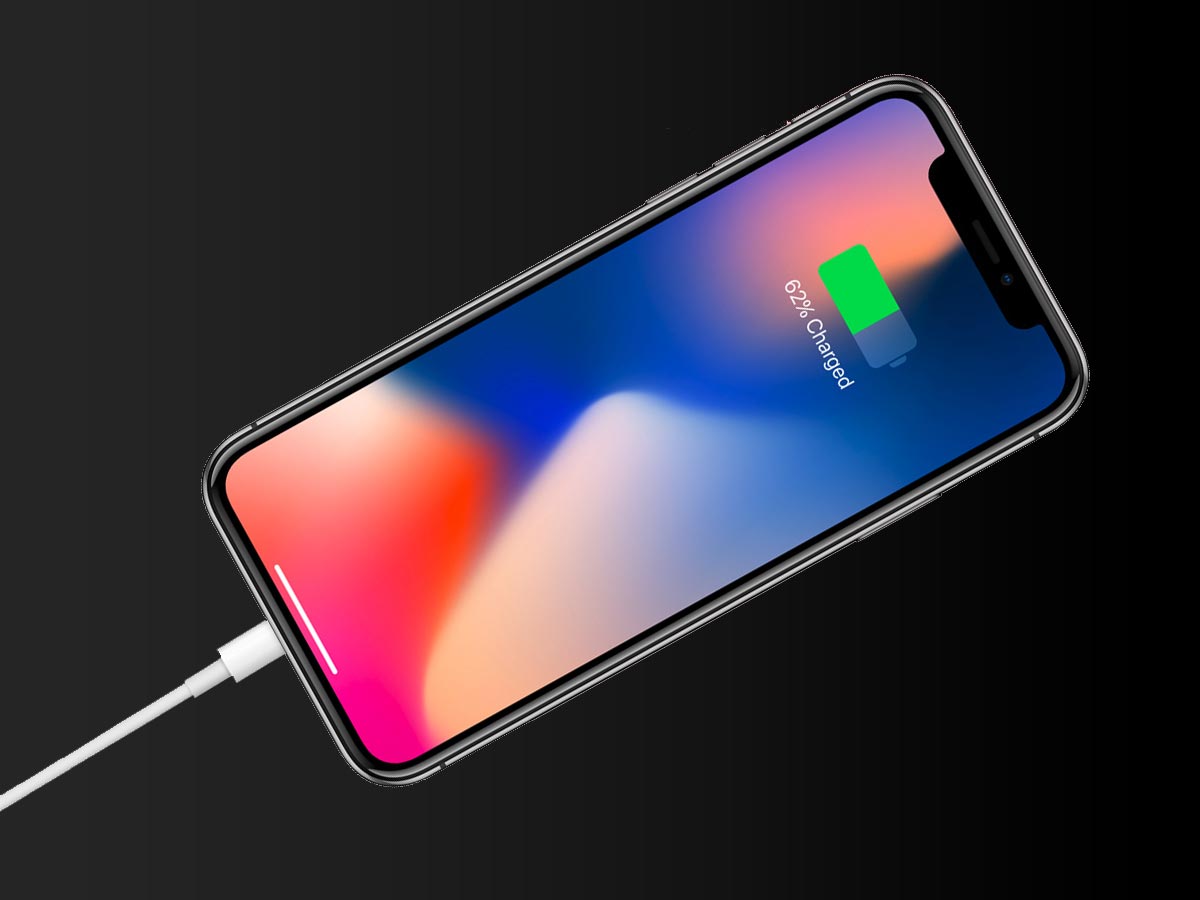
We're still in the process of running our battery test on the iPhone X, but we're anticipating that it will be the longest-lasting phone Apple's ever made. When you consider that OLED displays tend to be more efficient than LCD screens, the iPhone X should last considerably longer on a charge than the other new iPhones.
Credit: Apple/Tom's Guide
Mark Spoonauer is the global editor in chief of Tom's Guide and has covered technology for over 20 years. In addition to overseeing the direction of Tom's Guide, Mark specializes in covering all things mobile, having reviewed dozens of smartphones and other gadgets. He has spoken at key industry events and appears regularly on TV to discuss the latest trends, including Cheddar, Fox Business and other outlets. Mark was previously editor in chief of Laptop Mag, and his work has appeared in Wired, Popular Science and Inc. Follow him on Twitter at @mspoonauer.
 Club Benefits
Club Benefits






